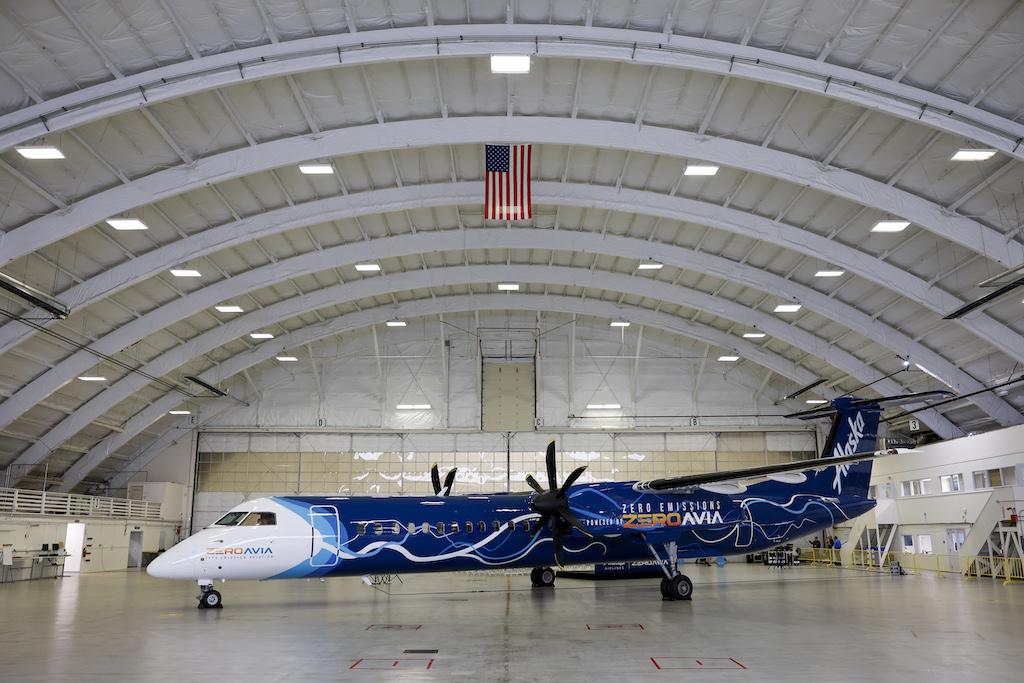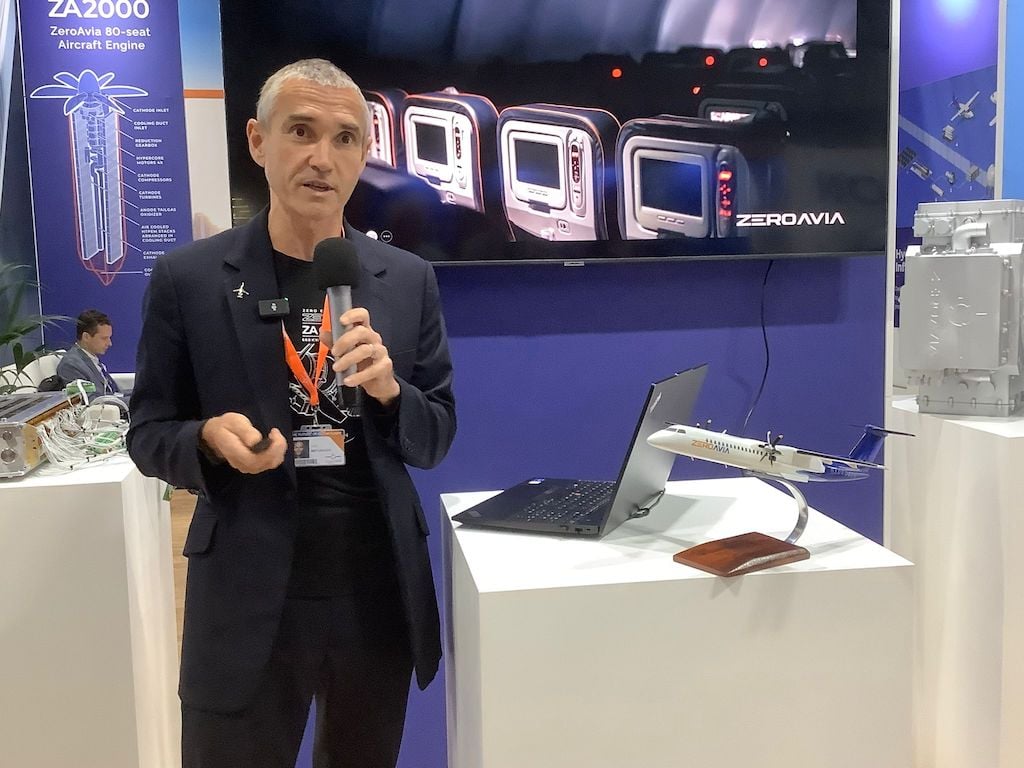
ZeroAvia Dash 8-400 in a hangar at Paine Field.
ZeroAvia is ground testing its ZA2000 hydrogen-electric powertrain on an Alaska Airlines De Havilland Canada Dash 8-400 with plans to progress to flight testing within a couple of years.
Initially, ZeroAvia is looking to certify the ZA600, which will power smaller commercial turboprops up to 20 seats. A ZA600 prototype engine flew on a Dornier 228 in January 2023 and the design was submitted to the UK CAA and FAA, with certification of the ZA600 expected in 2025 and entry into service (EIS) in 2026.
Giving an update on the company’s activities at Farnborough, ZeroAvia CEO Val Miftakhov said a “significant number” of test flights had been performed with three generations of ZA600 prototypes.

“We know the technology works,” he said. “We’ve got hundreds and hundreds of these engines on pre-order with a number of operators, and now we’re pushing it to market.”
ZeroAvia is building additional ZA600 prototypes for certification testing.
Beyond this, ZeroAvia is also eyeing 2027 engine certification and 2028 EIS for the ZA2000, which will power larger turboprops with 40 to 90 seats, such as ATRs and Dash 8-400s. “We are going to see a lot of that [turboprop] capacity moving to engines like this,” Miftakhov said.
ZeroAvia is ground-testing the ZA2000 on an Alaska Airlines Dash 8-400. The propellor has been run and the company is moving towards higher-power component testing and integration with the aircraft. Miftakhov said flight tests will begin in “a couple of years” at the earliest.
Explorations are also underway for a regional jet variant, the ZA2000RJ. This is being developed in partnership with Mitsubishi’s regional jet division, which owns design rights to the CRJ platform.
“We have done the work with the manufacturer to confirm the feasibility of our technologies for that size of [regional jet] aircraft,” he said. “And now we are working on bringing that closer to market as well.”
Airbus became one of ZeroAvia’s lead investors late last year, and Miftakhov said he hopes to power Airbus’ ZEROe concept aircraft, which is expected to come to market around 2035.
During the briefing, Miftakhov was asked about the failure of California-based Universal Hydrogen, which was developing its own hydrogen-electric propulsion systems in competition with ZeroAvia. “It’s never good news when a competitor working on the same type of technology goes out of business. Overall, I think we’re taking quite a different approach.”
Whereas ZeroAvia was concentrated on fuel cell design, Universal had ambitions to develop a modular hydrogen storage and distribution network.
Miftakhov said ZeroAvia has hired some of Universal Hydrogen’s former staff.





